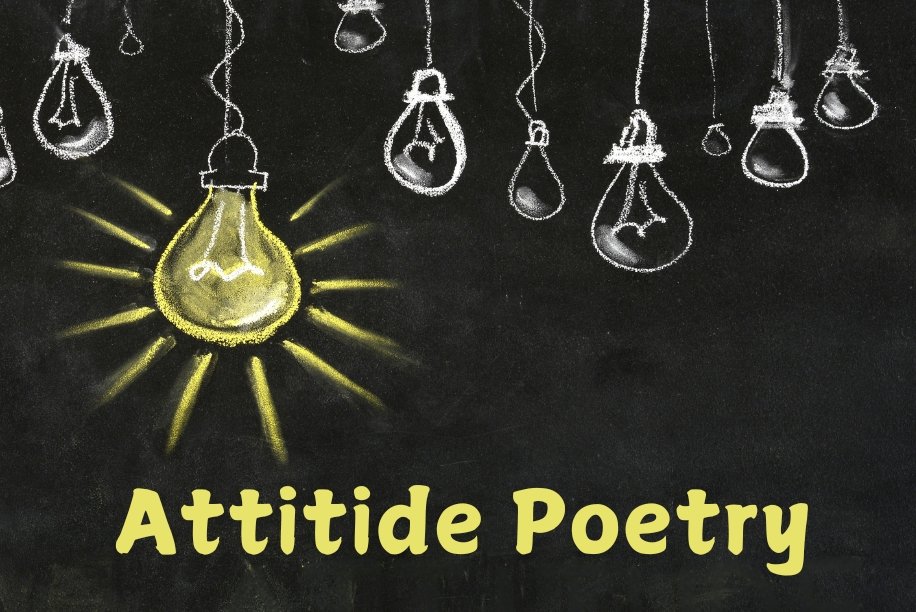Attitude Poetry in Urdu: A Voice of Defiance, Identity, and Cultural Pride
Attitude poetry in Urdu has made a strident mark on literary circles, combining the musicality of the tongue with fearless self-expression. Drawing on confidence, resilience, and individuality, the genre forgoes traditional romanticism to speak out against society. Poets employ metaphors for storms, indestructible mountains , or invincible chains to represent inner strength, writing verses like “Main woh toofan hoon jo rukne ka naam nahi leta” (“I am the storm that does not stop”). These lines hit home, indicating an evolving culture of self-empowerment.
Main Themes: Rebellion, Self-Respect
Attitude poetry, at its essence, is about celebrating khud-dari (self-respect) and zidd (persistence). It upends stereotypes, especially among marginalized groups and women, through lines such as “Zindagi meri, faisle meray” (“My life, my decisions”). The language has a balance — raw, vernacular Urdu walks hand in hand with classical vocabulary that makes it relatable and profound. Rhyme schemes (radeef-qafia) and rhythmic meters (behr) imbue musicality and transform words into anthems.
Contemporary Relevance and Cultural Appeal
Once sealed to literary salons, attitude poetry fits into Instagram, TikTok, and YouTube. Short impactful couplets (ashaar) with visuals or Urdu calligraphy go viral and appeal to the Gen-Z and millennials. It connects generations — grandparents appreciate the links to legends like Mirza Ghalib, while youth embrace its modern impudence.
Why It Stands Out
Unlike most of the more tedious divisions of poetry, this sort thrives on duality — it praises tradition while galvanizing the current. From spoken-word performances to social media trends, it turns personal struggles into collective empowerment and shows poetry can be both a mirror and a weapon.
Final Thoughts
And not in the way of verses; attitude poetry in Urdu is a cultural revolt. Raw, unvarnished, and deeply relatable, it urges readers to take ownership of their stories unapologetically. It makes noise when the world is ringing, showing us how to whisper revolutions on the tip of our tongues when they are matched with conviction.
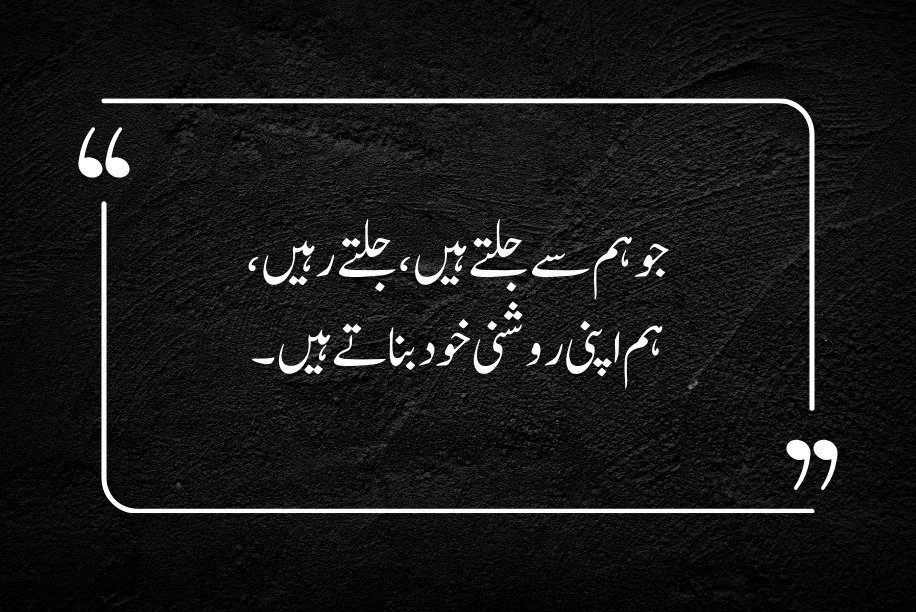
“Jo hum se jalte hain, jalte rahein,
Hum apni roshni khud banate hain.”
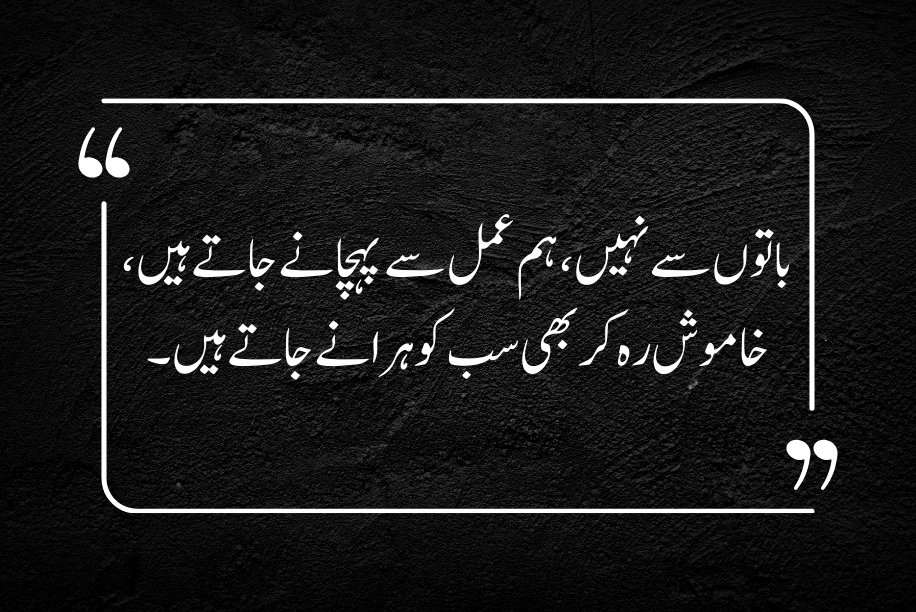
“Baaton se nahi, hum amal se pehchane jate hain,
Khamosh reh kar bhi sab ko harane jate hain.”
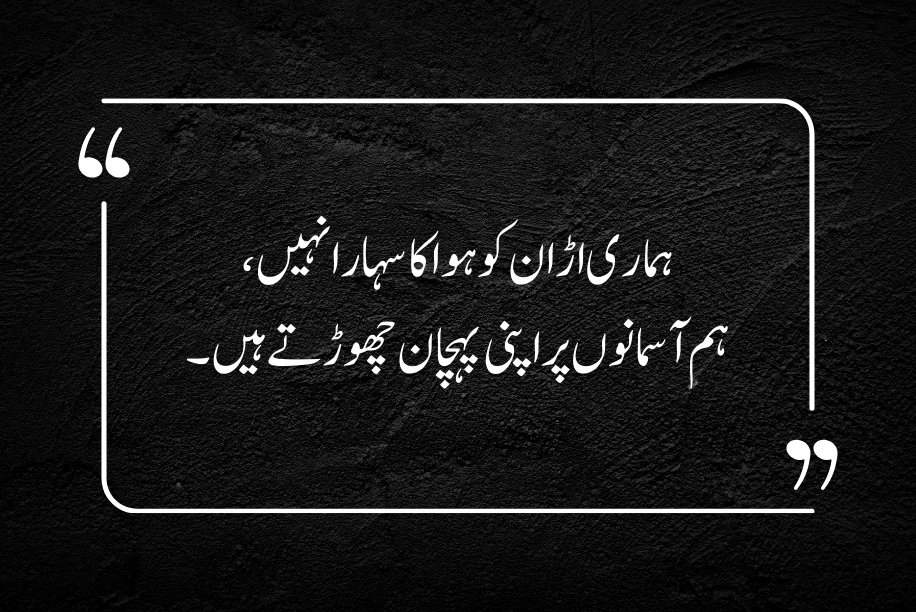
“Hamari uran ko hawa ka sahara nahi,
Hum asmanon par apni pehchan chhodte hain.”

“Jo hamari qadar na kare,
Usay raste mein chhod dena hamara usool hai.”

“Hum jhukte nahi, na kabhi girte hain,
Hosle hamare, zamane se barhe hain.”
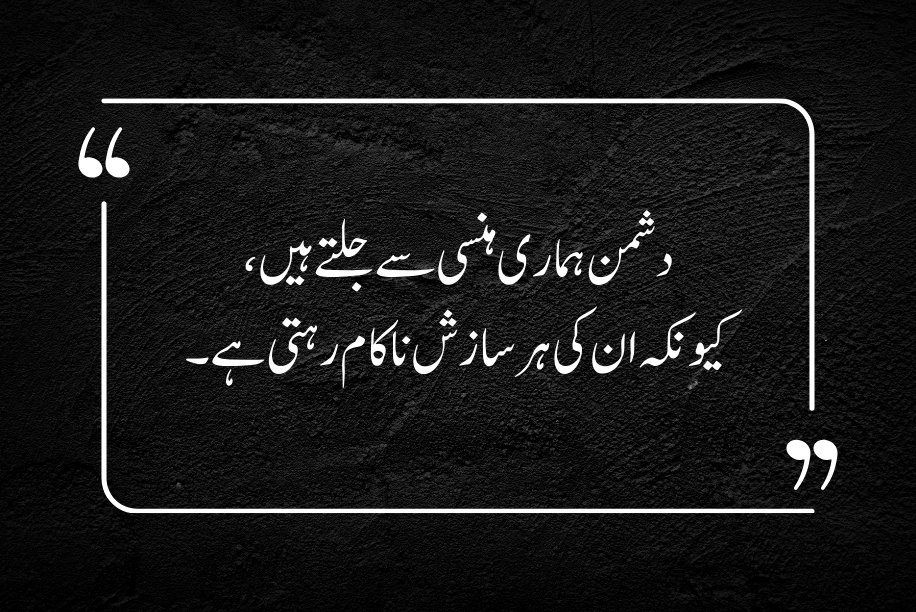
“Dushman hamari hansi se jalte hain,
Kyunki unki har sazish nakaam rehti hai.”
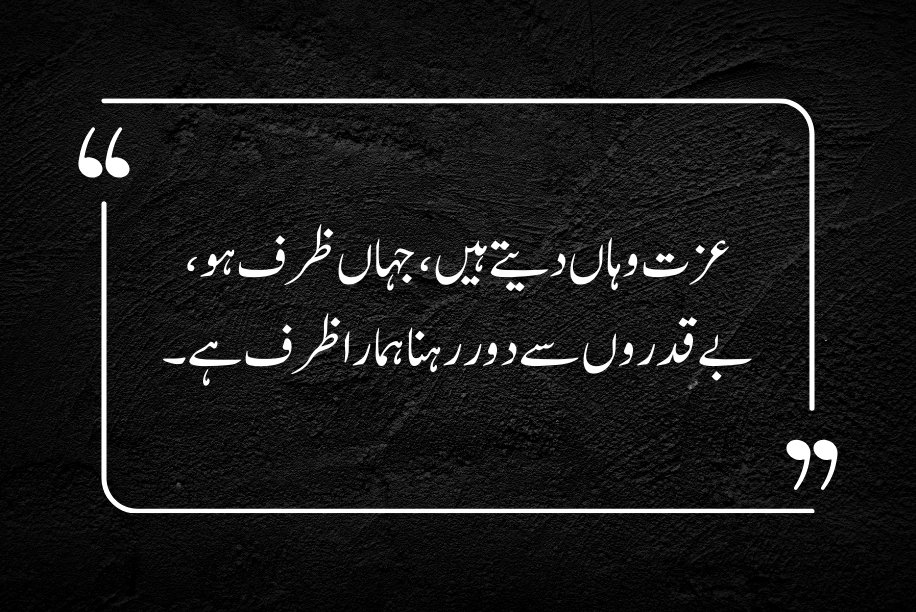
“Izzat wahan dete hain, jahan zarf ho,
Be-qadro se door rehna hamara zarf hai.”
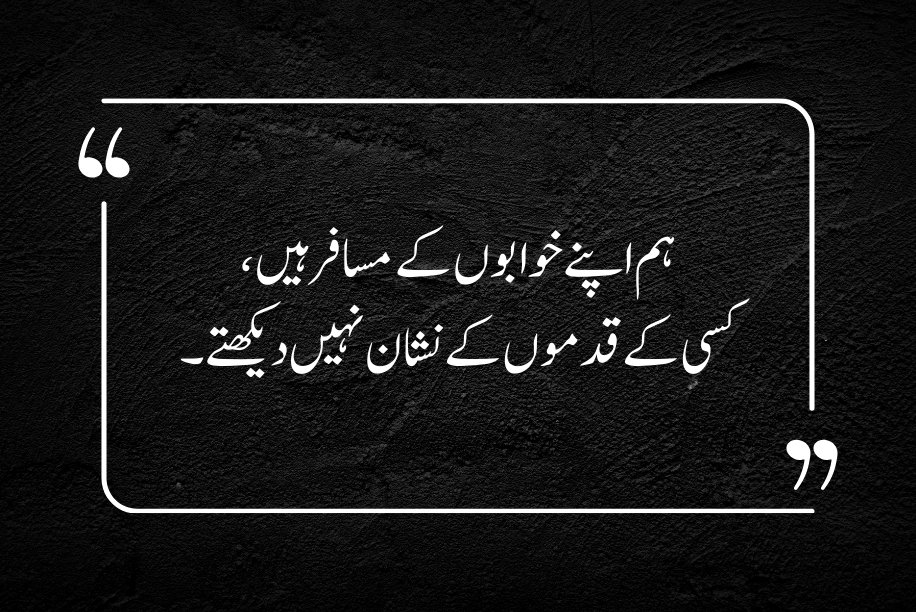
“Hum apne khwabon ke musafir hain,
Kisi ke qadmon ke nishan nahi dekhte.”
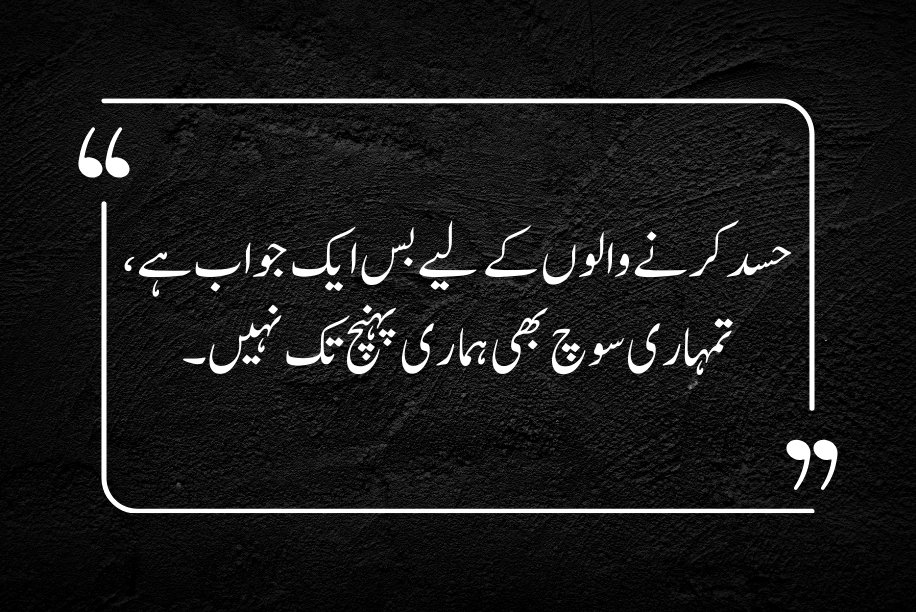
“Hasad karne walon ke liye bas ek jawab hai,
Tumhari soch bhi hamari pahunch tak nahi.”
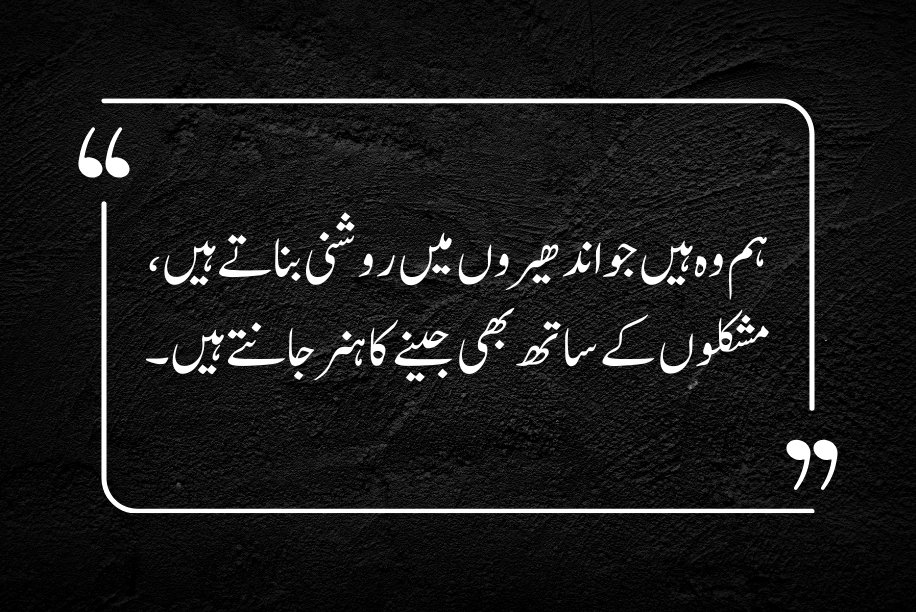
“Hum woh hain jo andheron mein roshni banate hain,
Mushkilon ke sath bhi jeene ka hunar jante hain.”
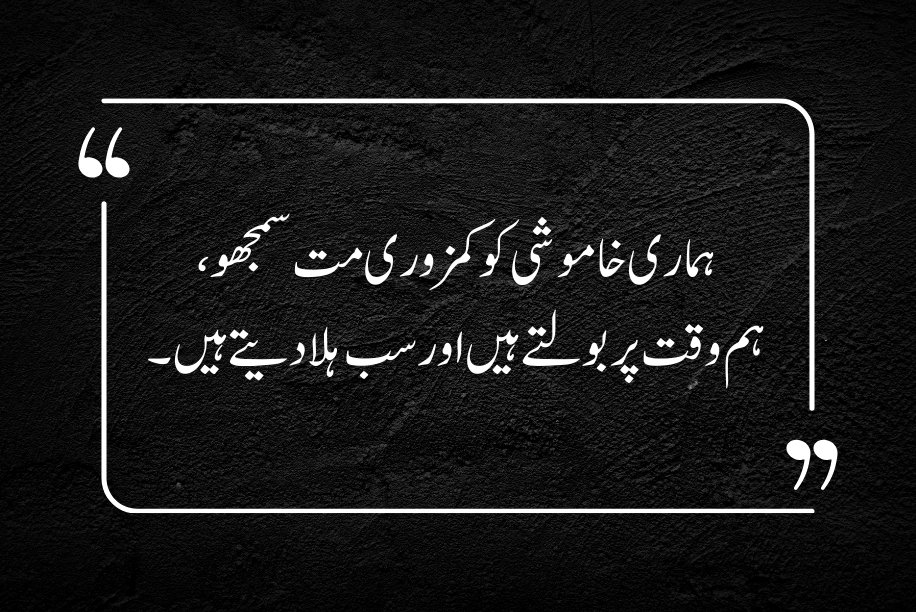
“Hamari khamoshi ko kamzori mat samjho,
Hum waqt par bolte hain aur sab hila dete hain.”
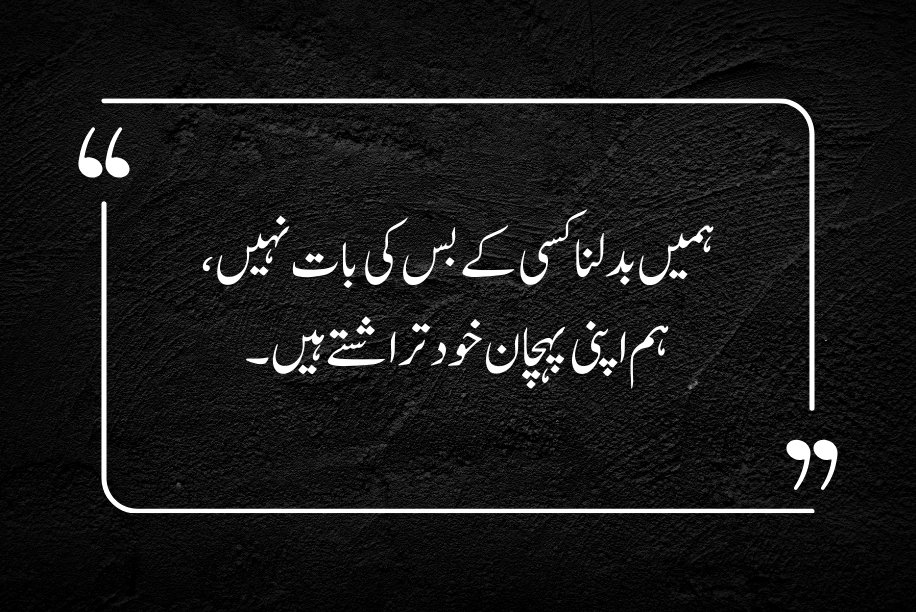
“Humein badalna kisi ke bas ki baat nahi,
Hum apni pehchan khud tarashte hain.”
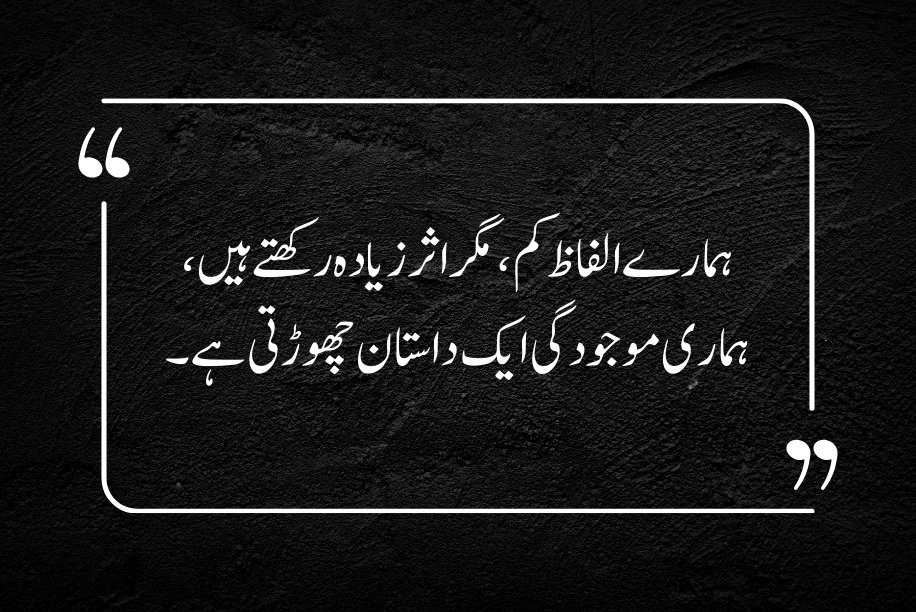
“Hamare alfaaz kam, magar asar zyada rakhte hain,
Hamari mojoodgi ek dastaan chhodti hai.”
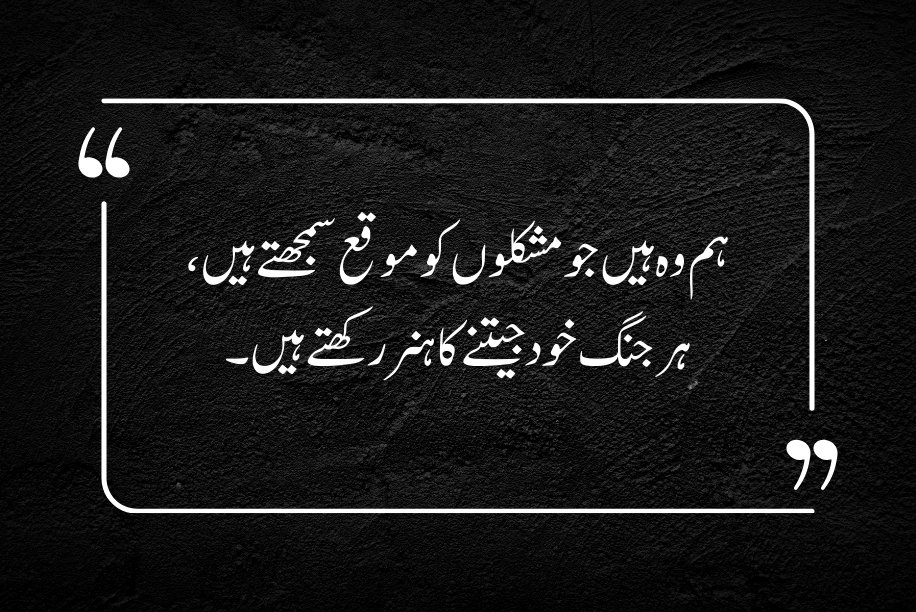
“Hum woh hain jo mushkilon ko moka samajhte hain,
Har jung khud jeetne ka hunar rakhte hain.”
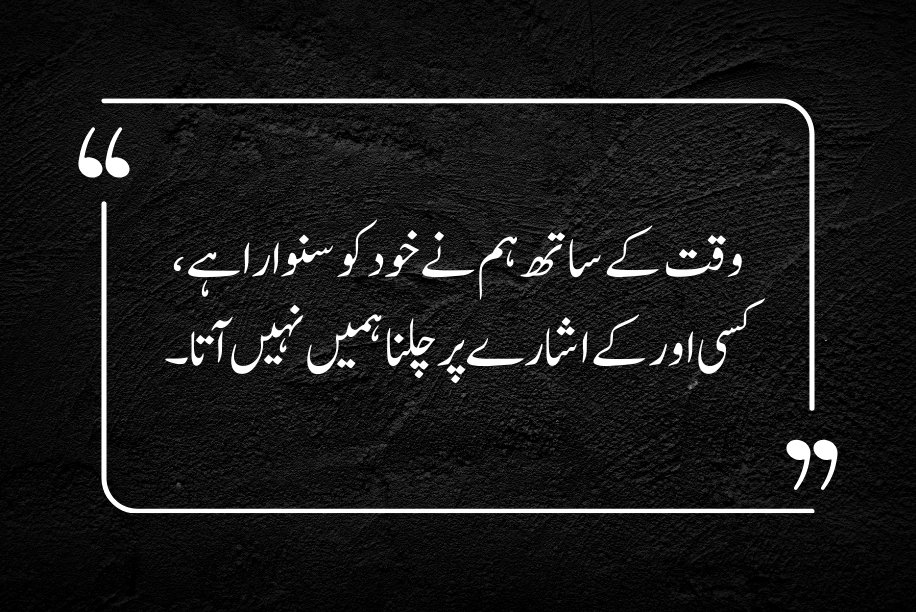
“Waqt ke sath humne khud ko sanwara hai,
Kisi aur ke ishare par chalna humein nahi aata.”
For more quotes check mindfullquotes.com

